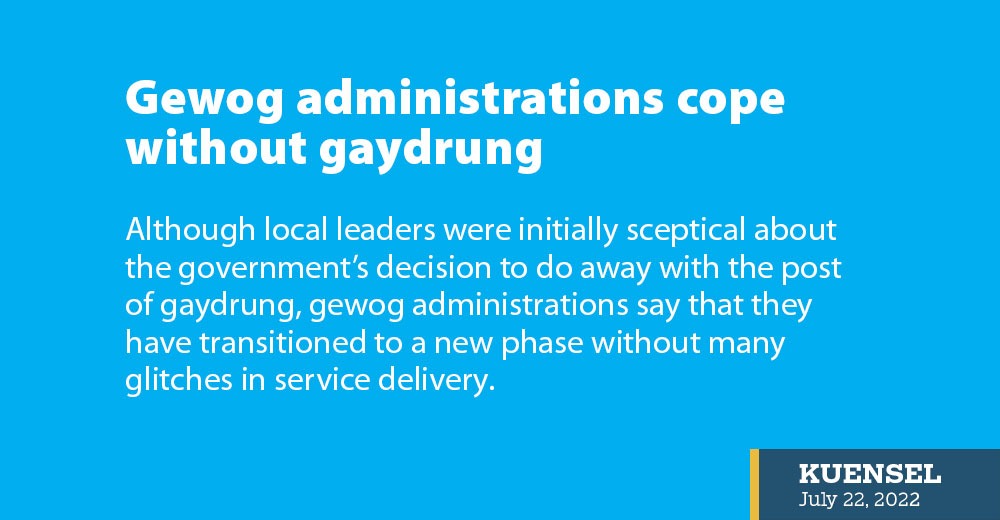MB Subba
Although local leaders were initially sceptical about the government’s decision to do away with the post of gaydrung, gewog administrations say that they have transitioned to a new phase without many glitches in service delivery.
While doing away with the post of gaydrung, the government in April had asked gewog administrations to redesign the overall structure of local government organisations and engage gewog administrative officers (GAOs) by redefining their roles and responsibilities.
Gewog administrations have delegated the work of the gaydrung to the mangmi, tshogpas and the gewog administration officer (GAO).
The responsibilities of a gaydrung included collection of taxes, insurance, drafting letters and manning the gewog centre office, among others.
Samdrupjongkhar’s Langchephu gup, Guman Singh Gailal, said that services were not hampered and the responsibilities were shared among all the gewog officials. “We haven’t faced issues due to lack of a gaydrung.”
Some gewogs, though, still feel that gaydrungs are necessary.
“Gups can’t stay in the office all the time. GAOs are involved in planning activities,” a gup from Chukha said, adding that gaydrungs were required.
The dzongkhag tshogdu chairperson of Samtse, Nima Dukpa, said that there would not be an issue if local leaders are willing to share the responsibilities. “All of us at the gewogs do the work that was carried out by the gaydrung,” he said.
However, some gups said that gewogs that do not have GAOs could face problems as the workloads increase in the future.
Officials from the department of local governance (DLG) in the previous interview had said that gewog administrations should report to the ministry if they face human resource shortages in their gewogs.
The DLG officials said that the government would ensure that service delivery is not affected.
One of the gups from Pemagatshel said that larger gewogs were facing problems in absence of gaydrungs. He added that both the gup and the mangmi did not have the required academic qualifications in some gewogs and that such gewogs would face issues.
The post was done away with although financial and executive powers were being decentralised to local governments.
Those who are sceptical about the decision say that the human resources at the local governments should be increased.
Tsirang Dzongkhag Tshogdu (DT) in April requested the prime minister to retain the post, stating that gaydrungs played an important role in delivering public service.


